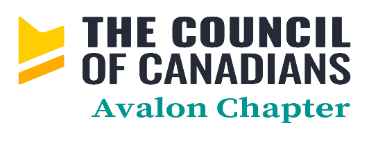|
May 13th
It's hard not to conclude that the Premier's Economic Recovery Team believes that only the private sector can effectively rescue government from economic collapse. Privatization is to be the way forward. Our concern is that "The big reset" implicitly reinforces the current Liberal government's enthusiasm for P3s. There are sound economic reasons why we believe that to be a mistake. Some of them we've outlined in our letter to MHAs below. _______________________________________________________________________ Dear Member of the House of Assembly; We extend both our congratulations on your election to the House of Assembly and our admiration that you would take on this challenging role at a time when our province has so many problems to deal with. The specific focus of this letter is to urge you to take a stand against any further Public Private Partnerships (P3s) for upgrading infrastructure in our province. We cite three reasons: 1. There is increasing awareness that P3s are not in the public interest. For example: In Canada five provincial auditors have said that P3s cost taxpayers substantially more. They have also found that, instead of transferring the risk to the private sector – one of the main justifications for privatization – provincial governments usually end up assuming all the risk. Similar concerns exist in Europe. In 2018, the European Court of Auditors reported widespread shortcomings in European P3s and the British government announced that it would no longer sign on to P3 projects. 2. Various reports show that P3s do not adequately benefit local economies. The initial investment required is often too high for local businesses to participate as anything other than minor players. Meanwhile, the profits leave the province. It can also be extremely difficult to cancel P3 contracts even if there is massive mismanagement. 3. P3s shift the costs of infrastructure projects to future governments. That’s an unfair burden to place on tomorrow’s taxpayers. We believe it is self-serving to assume that the economic prospects of our children and grand-children are going to be rosier than those of this generation. We would also like to draw your attention to a recent report on P3 projects in this province by the Canadian Centre for Policy Alternatives. The report judged consulting firm Ernst and Young’s seven to twelve percent assessment of savings using P3s to have been both optimistic and flawed. The CCPA documented many biases in the EY assessment, which is not surprising given that the company had a vested interest in promoting the projects. In conclusion, we don’t disagree with much of the PERT report's analysis with respect to the extent of our province's economic problems. We recognize that something has to be done. Hard choices have to be made. However, the emphasis on privatizing public assets and public services goes against growing evidence worldwide that this is not in the economic interests of the public. The PERT report is, to us, reminiscent of the kind of IMF directives that have been imposed on indebted Third World countries over the last 70 years. Consider where that got those countries – loss of sovereign decision making and increased dependency on mega projects, backed and controlled by elite corporations. We urge you to explore alternatives to the privatization “solutions” implicitly promoted in “The Big Reset”. There has to be a better, more progressive way forward. Marilyn Reid and John Jacobs for Avalon Chapter of the Council of Canadians http://avaloncouncilofcanadians.weebly.com/ mailto:[email protected]
0 Comments
Leave a Reply. |

